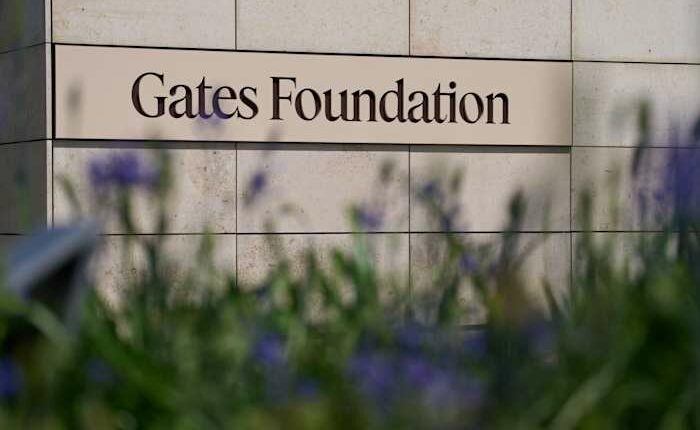Share this @internewscast.com

Upcoming innovations in women’s health highlight the potential outcomes of increased investment. Utilizing ultrasound technology enhanced by artificial intelligence, healthcare workers on the frontline could soon monitor embryo development with minimal training. Additionally, birth control options that last for six months could provide women with more autonomy over their reproductive choices.
These innovations are just two examples from over 40 initiatives the Gates Foundation plans to fund as part of a five-year, $2.5 billion investment in women’s health research and development. This commitment more than triples the foundation’s previous spending on women’s health advancements over the past five years.
Ru-fong Joanne Cheng, director of Women’s Health Innovations at Gates, stated, “Many of the most pressing conditions impacting women are still understudied, underdiagnosed, and overlooked.”
According to the foundation, a minute fraction of medical research budgets funds studies on women’s specific health issues, such as gynecological and menstrual concerns, obstetric care, contraceptive advancements, sexually transmitted infections, and maternal health and nutrition. They referenced a 2021 McKinsey and Company study indicating only 1% of all medical research, excluding cancer studies, focuses on women’s health.
The new commitment correlates with the foundation’s May announcement to allocate its resources over the next 20 years, focusing heavily on global health. While this research aims to benefit women globally, the foundation notes a pronounced necessity for innovation in sub-Saharan Africa and Southeast Asia.
By channeling billions into women’s health, the foundation demonstrates its commitment to investing in this vital area even after Melinda French Gates’s departure in 2024. French Gates has been instrumental in supporting health initiatives for girls and women, and since parting ways with Bill Gates, she has dedicated over $1 billion to enhance women’s health, economic opportunities, and political influence.
The announcement follows a U.S. pullback of support for global maternal health programs during the first seven months of the Trump administration.
The shuttering of the U.S. Agency for International Development and program reductions at the Centers for Disease Control have sunset programs focused on women’s health. According to a March internal USAID memo, the agency’s closure will stop services for 16.8 million pregnant women annually.
In April, the World Health Organization said that the 40 percent decline in maternal deaths from 2000 to 2023 has been put at risk because of aid cuts.
‘We need both innovation and delivery’
While the foundation continues to focus on the delivery of health care globally in an era of governmental retreat, the $2.5 billion will focus squarely on research needed to save lives, Anita Zaidi, president of Gates’s Gender Equality Division, said on a press call Monday to discuss the announcement.
“This is an innovation-focused announcement,” she said. “We need both innovation and delivery.”
It’s important to remember that the U.S. Food and Drug Administration has only been required to test novel drugs on women in clinical trials since 1993, and many tests are still only done on men, said Katy Brodsky Falco, founder of the Foundation for Women’s Health, which plans to make $5 million in research grants this year.
With Gates getting behind research and development of women’s health with such a large commitment, others may follow, Brodsky Falco said.
“Hopefully it will bring the issue to the top of the conversation among private donors and family foundations, even if they otherwise haven’t supported this type of work,” she said.
Moses Obimbo Madadi, professor at the University of Nairobi, noted that postpartum hemorrhaging causes about 3,000 deaths annually in Kenya. If men were the victims, he said, a G7 conference would be called to find a solution, but research on the subject has largely been ignored because it claims the lives of women.
“We’ve treated this as a peripheral issue other than making it a centerpiece of our research,” he said, calling the Gates commitment a “very good starting point.”
_____
Alex Daniels is a senior reporter at the Chronicle of Philanthropy, where you can read the full article. This article was provided to The Associated Press by the Chronicle of Philanthropy as part of a partnership to cover philanthropy and nonprofits supported by the Lilly Endowment. The Chronicle is solely responsible for the content. For all of AP’s philanthropy coverage, visit https://apnews.com/hub/philanthropy.
Copyright 2025 The Associated Press. All rights reserved. This material may not be published, broadcast, rewritten or redistributed without permission.










